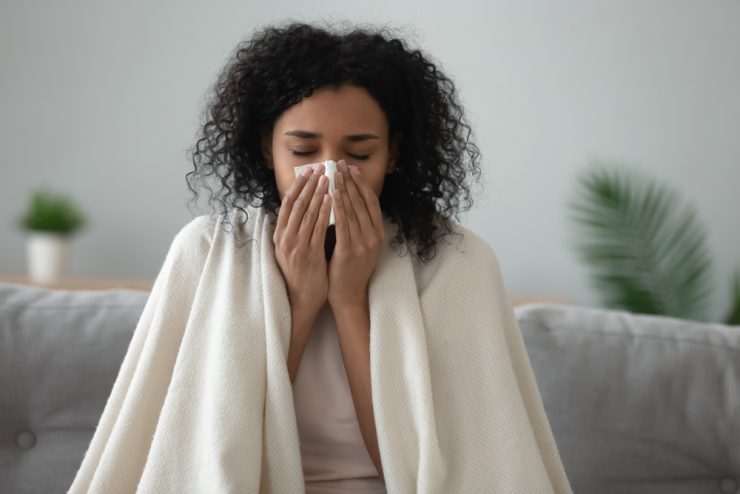With the cold and flu season just around the corner, editor Jane Garton shares 7 things you need to know and how to keep yourself well this winter.
-
A cold is caused by a virus
The common cold is caused by a virus that results in inflammation of the nose and throat. There are more than 200 different types of cold virus and most adults get between two and five colds a year while children can get as many as eight.
-
Colds and flu are not the same
Although they share many symptoms such as coughing and sniffing, flu usually develops more suddenly than a cold and has other symptoms such as fever, aches and pains and a general feeling of unwellness. They say that if you wouldn’t get up to pick a £50 note off the floor, you are more than likely suffering with the flu rather than the common cold.
-
You get more colds in winter
Colds are seasonal, with most occurring in the winter. The reasons? When your nose gets cold its blood vessels shrink making it less efficient at keeping out viruses. We also spend more time indoors in crowded places making it easier for germs to spread. Lastly there is less sunlight to kill viruses and generate vitamin D on our skin, good levels of which are important for strong immunity.
-
Herbs can help immunity
There are some supplements you can take to boost your immune system. Echinacea is a favourite and has been shown to reduce the severity of colds if taken at the first hint of symptoms. Hot on its heels comes pelargonium. Supplements containing a unique extract obtained from the root of the South African pelargonium plant have been shown in research to be effective at relieving symptoms of upper respiratory tract infections including runny noses and sore throats.
-
Antibiotics won’t cure a cold
Antibiotics kill bacteria rather than viruses so are not effective when it comes to treating colds. Most colds will get better by themselves within five to seven days. See below ‘On the cold front’ for self-help tactics.
-
Exercise helps
Research suggests that regular moderate activity increases the number of immune cells circulating in the body. It also encourages deep breathing and sweating which help the body expel toxins. Don’t over do it, though, as too much activity can leave you feeling tired and too weak to resist infection. Aim for at least 30 minutes of brisk but comfortable exercise most days of the week. Walking is a good option.
-
Colds need feeding
Some people lose their appetite when suffering from a cold. If you are one of them try to eat little and often with five or six small meals a day. Try nutrient-rich snacks including homemade soups and smoothies. Plenty of fresh vegetables and fruit will also help boost immunity and stave off infections. Carrots, beetroot and peppers are all rich in cold-fighting nutrients.
On the cold front: top tips for when you’re suffering
Rest
Putting your feet up and taking it easy will allow your body to divert its energy into fighting the virus.
Drink up
Plenty of liquid is essential to help flush the infection out of the body and loosen a blocked nose. Try traditional remedies such as honey and lemon and chicken soup. But drinking plenty of water is a must.
Go easy on dairy
Avoid dairy products such as cream-based soups or milk-based products as they can increase phlegm.
Avoid smoking
Smoke is irritating and stops mucus clearing from your air passages. If you are a smoker, at least try and cut down when you are suffering with a cold. It could even be the little push you need to quit for good.
Watch alcohol intake
It expands blood vessels in your nose increasing that stuffy feeling.
When to seek medical help
If your cold goes on for longer than seven days, mucus secretions are yellowish or green, or you have had a cough lasting longer than 2-3 weeks, you should contact your doctor for further advice.





















Add comment